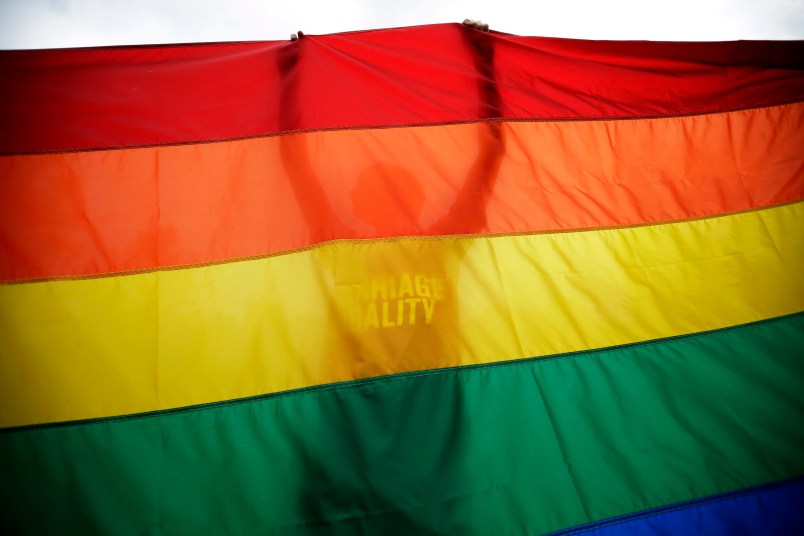A federal judge in Louisiana has upheld the state’s ban on gay marriage.
U.S. District Judge Martin Feldman’s ruling on Wednesday was the first defeat in a federal court for same-sex marriage since the Supreme Court ruled in 2013 that the U.S. government cannot deny equal benefits to married gay couples.
“The State of Louisiana has a legitimate interest under a rational basis standard of review for addressing the meaning of marriage through the democratic process,” Feldman wrote.
Feldman, who was appointed by Ronald Reagan in 1983, described the concept of same-sex marriage as “nonexistent and even inconceivable until very recently.” He wrote, “Many states have democratically chosen to recognize same-sex marriage. But until recent years, it had no place at all in this nation’s history and tradition.”
“This Court is persuaded that Louisiana has a legitimate interest…whether obsolete in the opinion of some, or not, in the opinion of others…in linking children to an intact family formed by their two biological parents, as specifically underscored by Justice Kennedy in Windsor,” Feldman wrote.
The judge also raised the specter of marriages between relatives as a potential consequence of adopting the reasoning pushed by opponents of the ban. “And so, inconvenient questions persist,” he wrote. “For example, must the states permit or recognize a marriage between an aunt and niece? Aunt and nephew? Brother/brother? Father and child? May minors marry? Must marriage be limited to only two people? What about a transgender spouse? Is such a union same-gender or male-female? All such unions would undeniably be equally committed to love and caring for one another, just like the plaintiffs.”
Constitutional challenges to gay marriage bans are quickly making their way up the courts. A slew of district court judges have ruled such bans a violation of the Constitution’s equal protection clause, citing the reasoning in the Supreme Court’s Windsor v. U.S. decision (although the justices didn’t take a position on state bans). This summer, two appeals courts also ruled that same-sex couples had a constitutional right to marry.
“This ruling is only surprising because so many courts have gone the other way in the last year,” said Adam Winkler, a law professor at UCLA.
An appeal of Feldman’s decision would be heard by the 5th Circuit Court of Appeals. If the decision is upheld there, it would set up a split between circuit courts which significantly raises the prospect of the Supreme Court stepping in. Many legal scholars believe the justices will ultimately have the final word.
“The Fifth Circuit leans conservative, so one might think the court would uphold the ban,” Winkler said. “Yet so many judges, regardless of their political leanings, have voted to strike down marriage bans.”
The ruling can be read below.










